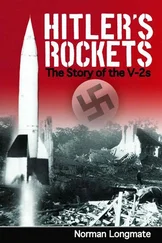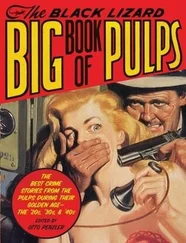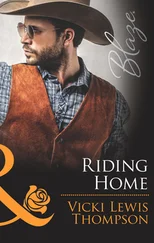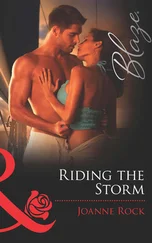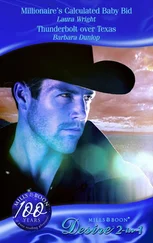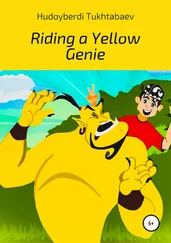Mike Mullane - Riding Rockets
Здесь есть возможность читать онлайн «Mike Mullane - Riding Rockets» весь текст электронной книги совершенно бесплатно (целиком полную версию без сокращений). В некоторых случаях можно слушать аудио, скачать через торрент в формате fb2 и присутствует краткое содержание. Жанр: Старинная литература, на английском языке. Описание произведения, (предисловие) а так же отзывы посетителей доступны на портале библиотеки ЛибКат.
- Название:Riding Rockets
- Автор:
- Жанр:
- Год:неизвестен
- ISBN:нет данных
- Рейтинг книги:3 / 5. Голосов: 2
-
Избранное:Добавить в избранное
- Отзывы:
-
Ваша оценка:
- 60
- 1
- 2
- 3
- 4
- 5
Riding Rockets: краткое содержание, описание и аннотация
Предлагаем к чтению аннотацию, описание, краткое содержание или предисловие (зависит от того, что написал сам автор книги «Riding Rockets»). Если вы не нашли необходимую информацию о книге — напишите в комментариях, мы постараемся отыскать её.
Riding Rockets — читать онлайн бесплатно полную книгу (весь текст) целиком
Ниже представлен текст книги, разбитый по страницам. Система сохранения места последней прочитанной страницы, позволяет с удобством читать онлайн бесплатно книгу «Riding Rockets», без необходимости каждый раз заново искать на чём Вы остановились. Поставьте закладку, и сможете в любой момент перейти на страницу, на которой закончили чтение.
Интервал:
Закладка:
I wasn’t the only astronaut to be surprised on the way to a stage. Hoot Gibson once served as a last-minute replacement speaker for Judy Resnik at a women’s event. The MC began the introduction by reading Judy’s entire biography. Hoot was dumbstruck. Judy wasn’t there. Everybody in the audience knew he was to be the substitute speaker, yet the MC droned on with Judy’s bio as if she were going to step out of the wings to give the program. Only after it was completely rendered did Hoot realize the MC’s purpose in reading it. It was to establish Judy’s irreplaceable importance to NASA. The MC went on with Hoot’s introduction in words that loosely translated, “Judy is so important to NASA there was no way she could be spared to come to speak at today’s event. But NASA could easily do without this useless dirt bag of a man so they sent him. We’ll just have to be disappointed and listen to his forgettable comments.” Then, after Hoot’s speech, the MC presented him with a plaque inscribed to Judy.
As my NASA career continued, I discovered new land mines to step on while in front of the public. In the Q&A that followed one of my speeches, a woman asked, “Have you seen any aliens?”
I answered, “No, but I believe there is alien life elsewhere in the universe. There are so many trillions of stars it’s easy for me to believe there will be planets around some of those stars that harbor intelligent life.” I should have quit right there, but like a fool, I continued. “However, I don’t believe any UFOs have landed on earth. Why,” I rhetorically asked the audience, “would an advanced civilization go to the trouble of building an interstellar craft, fly to earth to find it teeming with life, and then only hover over lonely women and beer-drinking men?” The crowd laughed. The woman asking the question did not. If looks could kill, I was a dead man.
The next week I received an anonymous letter postmarked Salt Lake City, Utah, viciously attacking my position on aliens. It was clear the writer believed the truth is out there and that I was part of the cover-up. I suspect the letter was from the woman who had asked the alien question.
This question was just one of many that could turn a public appearance into a gut-wrenching torture. “What happens when you fart in a spacesuit?” or “Do women have periods in space?” were the easy ones to answer. But questions like “Are there gay and lesbian astronauts?” and “Has there been sex in space?” had the potential to put a TFNG’s name in a Johnny Carson monologue.
The prizewinner in the category of fielding the most difficult question was Don Peterson (class of 1969). After one of his speeches, several members of the audience came to him with their questions. One asked, “Is there privacy on the shuttle to masturbate?” Don was immediately thrown into a panic. It was like being asked, “Do you feel better since you’ve stopped beating your wife?” It was impossible to answer. He considered saying no, but that implied astronauts had searched for such privacy. He imagined his face on a supermarket tabloid under the headline “Astronaut Complains: No Privacy to Spank the Monkey.” A yes reply held equally embarrassing possibilities: “Astronaut Admits to Five-Knuckle Shuffle in Space.” He mumbled an incomprehensible answer, praying whatever it was it wouldn’t come back to haunt him in the National Enquirer.
As Blaine Hammond learned in the El Paso flight operations office, the most dreaded form of public speaking was a TV interview. A streak of antiaircraft fire passing your wing doesn’t get your heart rate up like looking into a black camera lens and hearing, “Three…two…one…you’re live.” For me, it was a cadence that always brought on nausea. Once, as I was listening to this on-the-air countdown, the anchor leaned in to me and said, “It’s just like a shuttle launch. When you hit zero, there’s no going back.” He was right. Hearing, “You’re live,” was just like hearing the rumble of SRB ignition. You were flying. The camera was scattering your image and words into the living rooms of America and there would be no do-overs. I was sure my Adam’s apple was dancing like a bobblehead on a dashboard and my fear-widened eyes were darting like minnows. I imagined people at their breakfast tables laughing as I choked, trying to respond to a simple question like, “What’s your name?”
Live interviews could be made even more torturous by the AD antics of other astronauts. Several of us were in a Houston bar one evening when the TV caught our eye. A local station was airing a call-in interview with Ed Gibson (class of 1965) and TFNG Kathy Sullivan. One of our group immediately asked the bartender to borrow the phone and called in his questions: for Kathy, “How do girls pee in the toilet?” and for Ed, “What does Mrs. Gibson think of Mr. Gibson flying single women around the country in a NASA jet on overnight business trips?” We all hooted and hollered as the victims struggled with their answers.
Interviews with the print press were much more relaxing but still held the potential to screw an astronaut. During one interview I explained to the reporter my feelings of boundless joy and visceral fear while being driven to the pad for my first launch. I said, “To see the xenon-lighted Discovery and know it was my shuttle, that I was only hours from the culmination of a lifetime dream come true, nearly had me crying with joy.” But I was quoted as having said, “Astronauts cry from fear as they are driven to the launchpad.” The story was picked up by Paul Harvey and repeated to a huge national audience on his radio show. I was outraged and excruciatingly embarrassed.
Experiences like this explained why the astronaut office bulletin board occasionally displayed news articles in which an offending quote was circled with “I didn’t say this” written next to it by a pissed-off astronaut.
On August 31, 1979, Chris Kraft came to the astronaut office to tell us NASA was dropping the candidate suffix from our titles. Apparently we had impressed the agency enough for them to designate us astronauts nearly a year earlier than originally planned. We were no longer Ascans. I was happy to hear it. Even though I wouldn’t consider myself an astronaut until I got into space, I was tired of having to explain the title on PR trips and watching the crestfallen faces of event planners as they realized I wasn’t the real astronaut they had been expecting. At our next office party we were each given silver astronaut pins to go with our new title. These were lapel pins fashioned in the shape of the official astronaut symbol, a three-rayed shooting star passing through an ellipse. When we finally flew in space, we would be given gold pins. Actually, we would then be allowed to purchase, at a cost of $400, a gold astronaut pin. (The silver pins were paid for out of the office coffee fund.)
After returning from the party, I took my pin off, put it in a drawer, and never wore it again. To me it was a meaningless token, like the plastic pilot wings that stewardesses give to children. Those Delta Airline wings weren’t going to make a child a pilot and a silver pin and title weren’t going to make me an astronaut. Only a ride into space could do that.
Chapter 15
Columbia
Columbia was less than a year from launch, and, when it flew, it would mark NASA’s first manned spaceflight in six years. That was a concern for the NASA safety office. A six-year hiatus in manned operations provided a fertile environment for complacency. In defense, the office sent astronauts to various factories and shuttle support facilities to refocus the workers. We wanted to put a face on manned spaceflight, to reacquaint people with the deadly consequences of making a mistake on the job. Teams of astronauts were dispatched around the country and around the globe to give speeches, shake hands, and pass out NASA safety posters. We astronauts referred to these appearances as “widows and orphans” visits. While we never said, “Don’t fuck up or you could kill us and make widows of our wives,” that was exactly the message we hoped to impart by just standing there in our blue flight suits.
Читать дальшеИнтервал:
Закладка:
Похожие книги на «Riding Rockets»
Представляем Вашему вниманию похожие книги на «Riding Rockets» списком для выбора. Мы отобрали схожую по названию и смыслу литературу в надежде предоставить читателям больше вариантов отыскать новые, интересные, ещё непрочитанные произведения.
Обсуждение, отзывы о книге «Riding Rockets» и просто собственные мнения читателей. Оставьте ваши комментарии, напишите, что Вы думаете о произведении, его смысле или главных героях. Укажите что конкретно понравилось, а что нет, и почему Вы так считаете.

